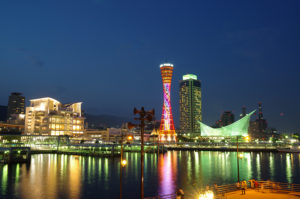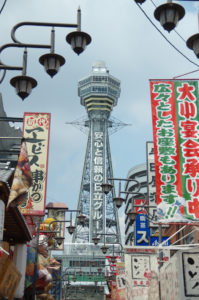There are a number of options and variations in the real estate investment opportunities in Japan.
You can invest in the condominiums, residential buildings, flipping the existing houses, flipping the abandoned houses, office buildings
boutique hotels and small hostels so on.
You also have to decide the area you want to invest.
Is it in Tokyo, neighboring areas of Tokyo or local cities which usually offer more attractive yields ?
Each option has both pluses and minuses.
In this article today, however, I will discuss in general what I think a good rental property is and what things to look at when you are considering buying a property for the investment in Japan.
In my opinion, you need to consider the following factors.
Monthly cash flow, the location, the value (appreciation), the condition of the property, the market and your age.
Taxes and other factors need to be considered as well.
Understanding the tax angles when you buy the property in Japan Part-1
Understanding the tax angles when you buy the property in Japan Part-2
Brief on Inheritance tax in Japan as of 2017
Among the above factors, the first thing I look is the monthly cash flow.
Why is cash flow so important ?
Usually I don’t recommend my clients to buy properties that break even or lose money on a monthly cash flow basis. Some investors want to buy properties hoping that the those will appreciate in the near future.I do know some of my friends have made a fortune during the bubble era whose properties had gone up sharply. However, I think such events should be considered as bonus on the top of monthly cash flow you earn.
The property market like other financial products is always unpredictable
and there is no guarantee the price will go up, and exiting your properties is quite expensive. Closing costs, brokerage and fees for the professional service and tax for registration could be about 5-7% of the property price.
You have to see values increase at least 5-7% to break even on a rental if you are only buying for appreciation.
Another problem with investors who buy properties that don’t produce adequate monthly cash flow(and hoping for the appreciation) is that they are often underestimating the expenses for repairs, maintenance and losing more money than they expected.
How do you calculate the real income on a rental property?
Cash flow of real estate investment is calculated as follows.
Cash flow = rent – expenses – repayment for loan
1. Rent
I think rent is easy to understand. Of course, it would be more realistic to reduce the rent as the property ages to match the market rate.
In Japan, newly built properties usually generate higher rent than their comparable ones.
2. Expenses (costs)
Expenses include vacancy loss, management fee, cleaning fee, elevator maintenance cost, repair expenses, city tax etc. It is difficult to calculate these precisely. Today I can only illustrate the approximate calculation.
Calculation varies depending on the competitiveness of the property, such as vacancy loss and repair cost. Theoretically the property which generates lower rent for the same square meters tend to have higher expense ratio.
Simply because they cost more to maintain.
It is fair to expect the expense ratio range 20% – 25% of the gross income you earn (rent).
So this expense ratio is only a rough indication.
There are expenses investors need to consider:
Vacancies: We would love it if all of my properties were rented out 12 months per year and were never vacant, but that is not realistic.
We need to assume that 10% of my monthly rents will go toward vacancies.
Maintenance: again, we would love it if none of rentals ever needed work, but they are buildings, and they need repairs, or some tenants do not treat them well.
Property management: A property manager takes care of all my properties because we do not need the hassle. Property managers can charge from 5 to 7 % of the monthly rents.
All of these costs can add up to be more than the mortgage payment itself.
If you do not consider these costs, you will be in for a huge surprise once you buy the property.
Not every cost will happen every month, but eventually you will run into bad tenants or big maintenance items that will make up for all the good months.
3. Repayment for loan (mortgage)
Monthly repayment is straight forward. Usually a very detailed repayment schedule for entire life is provided by a bank you borrow the money.
Or you can use a smartphone application to calculate monthly repayment yourself easily.
If you want to make money on rental properties every month after paying all the expense including the mortgage, you need to watch monthly cash flow as above.
If you buy the right properties, rental properties could be one of the best investments for people who don’t want to take too much market risk because they usually provide the stable monthly cash flow as long as you own them.
Rent in Japan has been very stable. It never goes up and down every day like a stock market.
What other factors should you consider when buying rental properties in Japan ?
In my opinion, except for the cash flow, location (and its population) is the biggest factor to look
at when buying real estate for investment.
Why is location of the property important ?
Location, location and location.
The importance of location is universal in real estate around the globe.
Location of the property is closely linked to the value and the cash flow.
Is the property in an area that may see some appreciation in the future
such as central Tokyo ? In Tokyo, for example, historically the best location has long been and remains the areas close to the emperor’s Imperial Palace which is also very close to the Tokyo’s financial districts where many banks and multinational corporations are headquartered.
Don’t buy properties in rural areas in Japan which appear
to be alluring by generating high yields.
Those properties are usually extremely difficult to sell.
Is the economy doing better or getting worse?
Please stay away from any areas that are losing population.
Tokyo is expanding as ever but 40 prefectures out of total 47
in Japan are shrinking.
You can buy the right property in the wrong location.
You can change the structure or remodel it but you cannot move it.
The good locations are those in prime spots and areas with the
following features are worth looking if not more.
Entertainment and shopping
In many cities, you will find homes that are located within walking distance of movie theaters, restaurants and boutiques are more expensive than those located further outside of town. Many people would rather not drive if they can walk to nightlife.
Public transportation, health care
In Japan, most people do not want to endure long commutes to work any more, and they take trains to commute. We don’t want to take a long time go and see the doctors nor the airport. Particularly amidst a aging country people prefer to be located close to emergency services and convenience stores so naturally properties in locations that shorten travel time are more desirable.
Lastly, there is one thing to consider:
Your age:
We usually have to borrow the money to finance our investment, and
the current cost of financing in Japan is so low.
Currently a few Japanese banks are offering foreign nationals the
mortgage loans for investment.
Suruga bank (a regional bank in Shizuoka pref.) for example,
offers loan for maximum 30 years
or until you become 80 years old. (which ever shorter)
Considering the historical low interest in Japan, the longer you borrow,
the more financial advantages you can benefit, and longer loan period
should help your monthly cash flow.
Conclusion
Not every area in Japan has good properties to invest.
(This goes for not only Japan but also other countries, too.)
Recent climbing price in some areas in Japan are making it more difficult to find
a right property to generate the adequate cash flow.
But if you look into the listing information more closely and
can secure unlisted properties which savvy agents catch,
you can locate a plenty of good properties to invest.
The financing cost in Japan is historically low (only 2.0-3%)
and there is no of going up.
Toshihiko Yamamoto
Real estate investing consultant and author.
Toshihiko is currently writing a book about the real estate investing in Japan
for foreign investors.
Founder of Yamamoto Property Advisory in Tokyo.
International property Investment consultant and licensed
real estate broker (Japan).
He serves the foreign companies and individuals to buy and sell
the real estates in Japan as well as own homes.
He holds a Bachelor’s degree in Economics from
Osaka Prefecture University in Japan
and a MBA from Bond University in Australia


